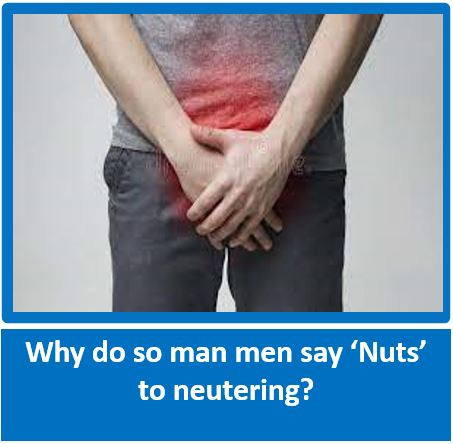|
Having a DNA done on your dog has multiple benefits - you can ensure not one of the breeds that tends to be worse for people with allergies - understand why they act in the way they do and any behaviour concerns related to the breed - depending on the breed, you will have a better idea as to what exercise suits them best - once you know the breeds, can research the possible genetic problems and be educated to same. Plus, it really is great to know your dog's breed make-up if a cross - so often our guesses are totally wrong! You are welcome to ask us any questions - www.muttmix.co.za
|
Is there really such a thing as a totally hypoallergenic dog?
by Friends of the Dog
by Friends of the Dog
Is there really a dog that is 100% hypoallergenic - the answer is no, and here is why.
Dander - contrary to what many people think, it is the proteins found in dander that causes the main allergic problems, not so much the hair - the hair itself is not an allergen, however pet hair can collect dander, saliva, urine, which also contains proteins, as well as pollens and house dust.
Dander is microscopic flecks of skin that are shed from not just dogs, but all animals that have fur or feathers. In addition to being on the dogs skin, it can cling to furniture, bedding and even clothing, and unless cleaned, does tend to stay around for a long time.
Yes, some breeds such as Bichon Friese and Schnauzers, do tend to have less dander than other breeds, with the hairless breeds having very, very little. However, all dogs shed dander to some degree or other, so there is no such thing as a dog that does not have dander.
The allergens can collect on furniture, bedding, clothing and other surfaces and do tend to stick
So a dog that is called hypoallergenic, will have a lot less dander, but it will still have dander to some degree, therefor no dog is 100% hypoallergenic.
Saliva - the other main component that tends to cause allergies is the proteins found in the dog's saliva. You will never get a dog without saliva, and even if the dog is a hairless breed, when it licks its paws and body, the saliva proteins will be put on the body or coat. Therefor, there is no dog that is 100% hypoallergenic in this case either.
Urine - you are less likely to get urine on your own skin, but when dogs have urinated, they do tend to lick themselves to clean, and very often will clean areas of the body as well. As all dogs urinate - there is no dog that is 100% hypoallergenic in this case either.
Things to consider to reduce allergic reactions in people
If you are looking for a dog that is less likely to cause allergies, then research the various breeds that tend to shed less, and even consider one of the hairless breeds. When considering one of the hairless breeds, you will have a lot less dander, but do bear in mind, that these dogs are prone to sunburn and are sensitive to extreme hot or cold temperatures, so care has to be taken in this respect. Ensure that the breed you choose is not known for drooling as well.
Within these breeds less likely to cause allergies, consider a small breed dog where the coat can be clipped on a regular basis by your groomer, which will lessen shedding and make for easy daily brushing - ideally get a family member without allergies to do this outside. It will also be a lot easier for you to bath your dog at home between clipping sessions - as above, try to get another family member to do this for you.
Stop the dog licking you from when it is a puppy. This is easily done, by just removing your hand and paying absolutely no attention to the dog. The more you say 'stop licking', you are inadvertently giving the dog attention, and the licking is more likely to continue. What you can also do to discourage licking, is to put a few drops of pure citronella oil onto your hands or the area the dog is licking. On average, dogs hate the smell and taste of citronella oil and it is very good for prevention.
Rather have your dog sleep outside your bedroom, and keep the door shut - we normally spend an average of 8 hours a night in our bedrooms, and by preventing access, you can reduce the chances of an allergic attack.
Also, daily vacuuming (with a mask on, which we should all be used to by now!)and cleaning of all surfaces should be undertaken and your dog's bed shaken outside on a daily basis, or vacuumed, and washed at least once a week - as mentioned, do try to have somebody else do this for you. Avoid clutter around the home, less really is more when one is allergic.
Avoid carpeting, or if you have to have a carpet, have a very short pile one, where it is easier to vacuum and pick up any dander that has landed there. Also steam clean the carpet on a regular basis, or have a carpet more like a throw, where it can be put in the washing machine.
If you have spend a lot of time with your dog, then have a shower after.
Consider getting a certified asthma and allergy type machine to remove particles in the air, and use for at least 4 hours a day. However, this will not assist with allergens on surfaces, only in the air.
Speak to your doctor about any medications you can take on an ongoing basis to reduce the chances of an allergic reaction from your dog.
Don't give up, with careful choice of the breed and the points mentioned above, there is no reason, unless your allergies are very bad, that you cannot live your life with one of God's presents to us - a dog!
Dander - contrary to what many people think, it is the proteins found in dander that causes the main allergic problems, not so much the hair - the hair itself is not an allergen, however pet hair can collect dander, saliva, urine, which also contains proteins, as well as pollens and house dust.
Dander is microscopic flecks of skin that are shed from not just dogs, but all animals that have fur or feathers. In addition to being on the dogs skin, it can cling to furniture, bedding and even clothing, and unless cleaned, does tend to stay around for a long time.
Yes, some breeds such as Bichon Friese and Schnauzers, do tend to have less dander than other breeds, with the hairless breeds having very, very little. However, all dogs shed dander to some degree or other, so there is no such thing as a dog that does not have dander.
The allergens can collect on furniture, bedding, clothing and other surfaces and do tend to stick
So a dog that is called hypoallergenic, will have a lot less dander, but it will still have dander to some degree, therefor no dog is 100% hypoallergenic.
Saliva - the other main component that tends to cause allergies is the proteins found in the dog's saliva. You will never get a dog without saliva, and even if the dog is a hairless breed, when it licks its paws and body, the saliva proteins will be put on the body or coat. Therefor, there is no dog that is 100% hypoallergenic in this case either.
Urine - you are less likely to get urine on your own skin, but when dogs have urinated, they do tend to lick themselves to clean, and very often will clean areas of the body as well. As all dogs urinate - there is no dog that is 100% hypoallergenic in this case either.
Things to consider to reduce allergic reactions in people
If you are looking for a dog that is less likely to cause allergies, then research the various breeds that tend to shed less, and even consider one of the hairless breeds. When considering one of the hairless breeds, you will have a lot less dander, but do bear in mind, that these dogs are prone to sunburn and are sensitive to extreme hot or cold temperatures, so care has to be taken in this respect. Ensure that the breed you choose is not known for drooling as well.
Within these breeds less likely to cause allergies, consider a small breed dog where the coat can be clipped on a regular basis by your groomer, which will lessen shedding and make for easy daily brushing - ideally get a family member without allergies to do this outside. It will also be a lot easier for you to bath your dog at home between clipping sessions - as above, try to get another family member to do this for you.
Stop the dog licking you from when it is a puppy. This is easily done, by just removing your hand and paying absolutely no attention to the dog. The more you say 'stop licking', you are inadvertently giving the dog attention, and the licking is more likely to continue. What you can also do to discourage licking, is to put a few drops of pure citronella oil onto your hands or the area the dog is licking. On average, dogs hate the smell and taste of citronella oil and it is very good for prevention.
Rather have your dog sleep outside your bedroom, and keep the door shut - we normally spend an average of 8 hours a night in our bedrooms, and by preventing access, you can reduce the chances of an allergic attack.
Also, daily vacuuming (with a mask on, which we should all be used to by now!)and cleaning of all surfaces should be undertaken and your dog's bed shaken outside on a daily basis, or vacuumed, and washed at least once a week - as mentioned, do try to have somebody else do this for you. Avoid clutter around the home, less really is more when one is allergic.
Avoid carpeting, or if you have to have a carpet, have a very short pile one, where it is easier to vacuum and pick up any dander that has landed there. Also steam clean the carpet on a regular basis, or have a carpet more like a throw, where it can be put in the washing machine.
If you have spend a lot of time with your dog, then have a shower after.
Consider getting a certified asthma and allergy type machine to remove particles in the air, and use for at least 4 hours a day. However, this will not assist with allergens on surfaces, only in the air.
Speak to your doctor about any medications you can take on an ongoing basis to reduce the chances of an allergic reaction from your dog.
Don't give up, with careful choice of the breed and the points mentioned above, there is no reason, unless your allergies are very bad, that you cannot live your life with one of God's presents to us - a dog!




